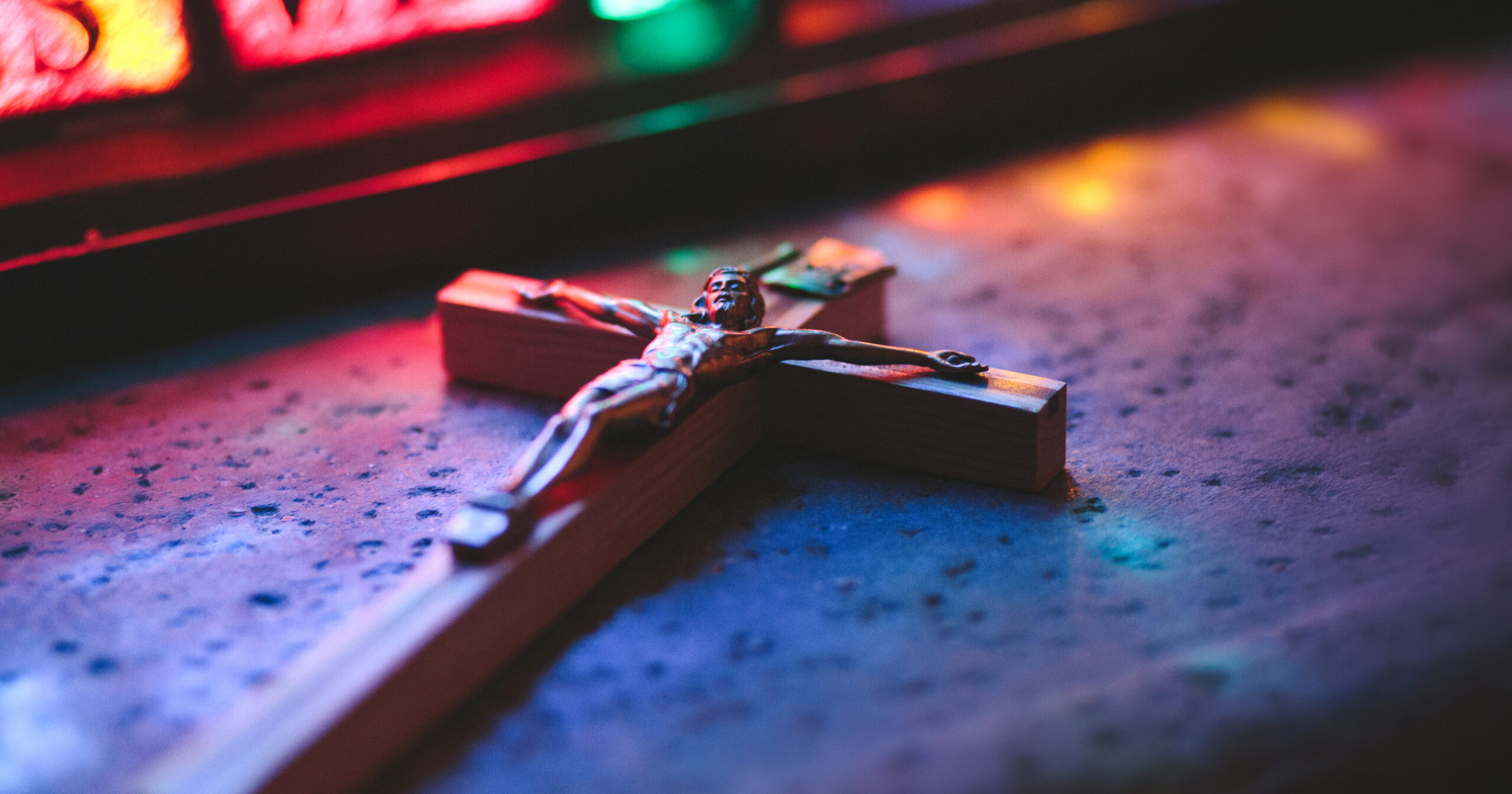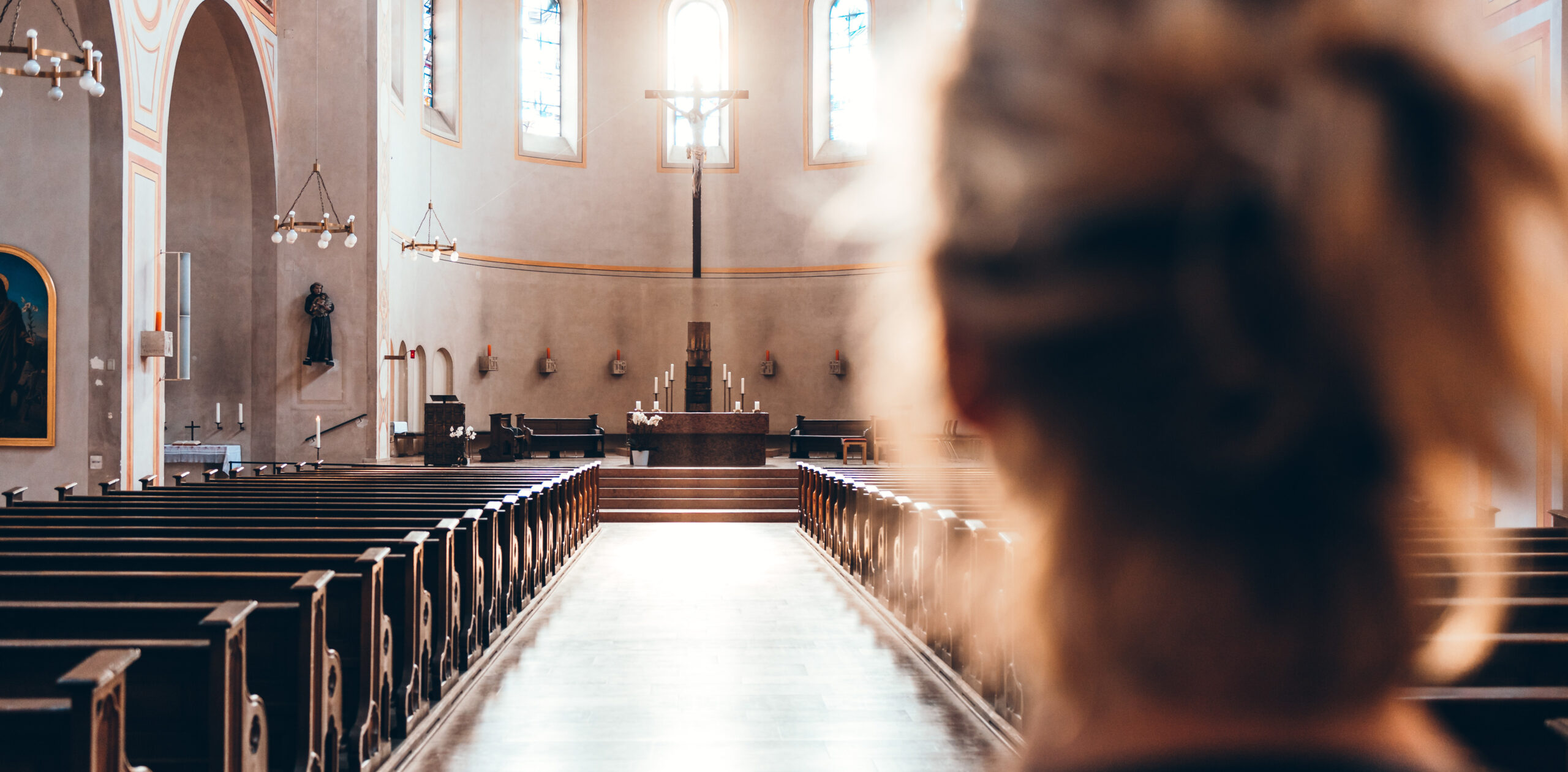In this series we’re looking at different parts of the holy sacrifice of the Mass, while illuminating various aspects so we can more actively participate. You can find the previous parts in this series below:
The Parts of the Mass: The Sign of the Cross
The Parts of the Mass: ‘The Lord Be with You’
The Parts of the Mass: ‘And with Your Spirit’
‘Pray for Me’
So many of us go to Mass and say the same things week after week. We get up, sit down, kneel, make the motions; but we don’t think about the biblical foundations of what we’re doing and how it can change our life.
In the second part of the Introductory Rite, we do something that is in a way kind of shocking. We stand and we collectively confess our sins. We don’t say them individually like we would in confession, but we generally make a confession about things we should have thought about before we came to Mass, some of those things that have gone on in our lives throughout the week that have impaired our relationship with God. We need to bring them to the Lord and ask him to forgive us.
Part of what we’re experiencing in the Mass is a sacrifice, and as a sacrifice—as we will see later—the Mass requires that the priest purifies his hands, as any priest would in the Old Testament before a sacrifice. But we, as the priesthood of believers, are also cleansing our hearts, hearing God, and receiving the Eucharist. We cleanse our hearts in what is called the Confiteor:
“I confess to almighty God and to you my brothers and sisters that I have greatly sinned, in my thoughts and in my words, in what I have done and in what I have failed to do, through my fault, through my fault, through my most grievous fault. Therefore I ask Blessed Mary—ever virgin—all the angels and saints, and you, my brothers and sisters, to pray for me to the Lord our God.”
The Need to Confess
It’s a beautiful prayer and we all say it. What’s happening during that time in the Mass when we make that confession? Well, the Church teaches us that in the holy sacrifice of the Mass we actually have an opportunity to deal with venial sin in our lives, which weakens our relationship with Christ—not to be confused with mortal sin which breaks that relationship. For mortal sin we have to go to confession to be forgiven, but the venial sin in our life we can actually take care of during Mass.
But here’s the key: if suddenly you stand up during the Mass and say, “I confess to almighty God and to you my brothers and sisters that I have sinned … ” but you haven’t thought about it, what are you confessing? Sure, there’s a general admittance that I’ve sinned, but I haven’t really thought about it and I’m not sure what it is. So part of preparing for Mass is thinking about your week, and the areas with your family where you’ve fallen short. Or is it something at work? Or your own walk with Christ? Is it your thoughts? Things you’ve said? There could be many areas where we’ve failed God. In fact, the Confiteor breaks it down into four things. It’s really beautiful:
- We ask God to forgive us for those things that we’ve thought, things that go on in our mind that get us dwelling on sin, letting it have its way with us. These thoughts can actually become mortal sin, whether it’s thinking about inappropriate things, or getting even with someone at work. We’ve thought about these things, so we confess them during the Confiteor.
- We also ask God to forgive us for the things we’ve said. Maybe we gave a harsh word to someone. The Confiteor is where we ask God to forgive us for our harsh words or for being short-tempered, or for saying something about someone at work that was just wrong.
- Then the prayer moves to a different category of sin: what we actually did, the actions in our life. So, we confess that as sin at this point.
- Then there’s the things we failed to do. Scripture says, “Whoever knows what is right to do and fails to do it, for him it is sin” (James 4:17). We can step around responsibilities and avoid being the witness that God called us to be in various ways. We need to confess that too.
Active Involvement
Next time you go to Mass, when you begin the Confiteor and you confess, think quickly, “What did I do this week?” Hopefully you prepare for this before you go to Mass. If you’re bringing your kids to Mass, you might want to tell them these things along the way. Tell them, “We’re going to have an opportunity to confess our sins. You just think about it. What have you thought, what did you say, what did you do, what didn’t you do that you really need to bring to the Lord?”
Isn’t it beautiful that at every Mass you get the opportunity to deal with the sin in your life? Sin weighs you down. Sin will make you a different person, but in Mass you can take care of it if you get actively involved.
Go Deeper!
A Biblical Walk Through the Mass by Dr. Edward Sri is a five-part program taking participants on an exciting in-depth tour of the Liturgy, exploring the biblical roots of the words and gestures we experience at Mass, and explaining their profound significance.
This article is also available as a video here.
You May Also Like:
Why Weekday Mass Doesn’t Fulfill Sunday Obligation
Why Sunday Mass Is an Obligation
Altaration: the Mystery of the Mass Revealed (study program)

Jeff Cavins is passionate about helping people understand Scripture and become disciples of Jesus Christ. Though he was born Catholic, Jeff went to Bible school and served as a Protestant minister for twelve years before reverting to the Catholic Faith. He then quickly became a leading Catholic evangelist and author. Jeff is best-known for creating The Great Adventure™ Bible study programs published by Ascension, which have been used by hundreds of thousands of people to engage in Scripture in a life-changing way. Some of his recent projects include his podcast, The Jeff Cavins Show, his book The Activated Disciple, and the Great Adventure Bible studies, Ephesians: Discover Your Inheritance, and Wisdom: God’s Vision for Life.
Featured painting, “The Repentance of Saint Peter” by Johannes Moreeise (c. 1630) from Wikimedia Commons.






Yes, great. Idea to bring it back!
I keep meaning to sacrifice a lamb but they can’t exchange my dollars for shekels. Biblical!
My parish priests have been skipping the Confiteor for years now. Is that allowed? Why would they skip it? I miss it!